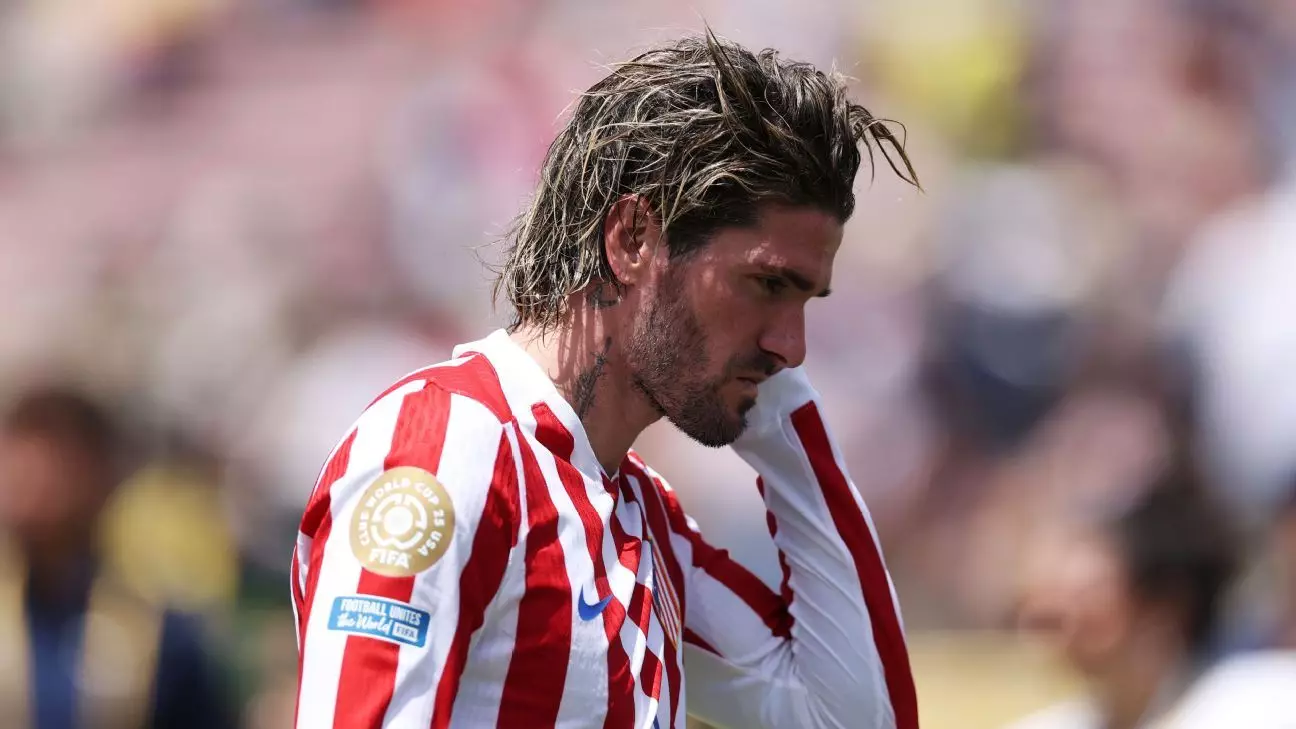Inter Miami is embarking on an aggressive path to establish itself as a powerhouse beyond just local competition. Far from settling for mediocrity or incremental improvements, the club’s management is actively seeking to bring in high-profile talents, signaling their desire to reshape not only Major League Soccer but also the footballing landscape of the entire region. Their current negotiations for Atlético Madrid’s Rodrigo De Paul exemplify this daring strategy. The club’s leadership, notably co-owner Jorge Mas, has made it clear: Miami intends to attract top-tier players who can elevate the team’s competitive stature significantly. This initiative underscores a fundamental shift in the club’s philosophy — they are no longer content with incremental growth but are aiming for bold, revolutionary moves that could rival the best teams in North and South America.
The pursuit of De Paul isn’t merely about adding another talented midfielder; it’s a tactical move to galvanize the squad with a proven leader who can influence games and inspire a winning culture. The club’s aspiration extends beyond just creating a star-studded roster; they aim to establish themselves as a regional beacon of excellence, challenging the dominance of other clubs across the hemisphere. This ambitious mentality frames Miami’s strategy as a statement of intent: they want to be more than just an MLS team — they want to be a significant player in international club football.
Navigating the Complex Landscape of Transfers and Contracts
The negotiations surrounding De Paul are a complex mix of strategic planning and logistical challenges. Inter Miami currently faces the typical MLS roster limitation of Designated Player spots, which are reserved for marquee names like Lionel Messi, Jordi Alba, and Sergio Busquets. With Alba’s recent contract extension through 2027, the club’s immediate goal is to free up space for De Paul without disturbing its existing star power. The ongoing contract negotiations with Messi and Busquets add another layer of uncertainty to Miami’s plans, but it also reveals their intent to maintain and potentially extend their star-studded roster.
Having Messi and Busquets under contract next season could significantly influence De Paul’s decision to join Miami, especially considering the camaraderie amongst Argentine players. But Miami’s strategic limitations become evident here: they simply can’t afford to meet Atlético Madrid’s likely transfer fee for De Paul, which complicates their efforts to lure the midfielder. Their relationship with Atlético Madrid, however, remains amicable, owing in part to the personal connections between executives, which might facilitate negotiations despite financial constraints.
The broader implications of losing De Paul threaten to ripple throughout Atlético Madrid. Simeone’s apparent reluctance to lose a player so integral to his tactical setup reflects the high stakes involved. With De Paul’s departure looming as a real possibility, Atlético are already exploring potential replacements, indicating how critical De Paul is to their team’s fabric. The club’s attempt to bring in players like Javi Guerra and Johnny Cardoso underscores their focus on maintaining competitive depth, should the Argentine international leave.
Strategic Implications and Regional Ambitions
What’s evident from Miami’s approach is the aggressive pursuit of a new standard — one that sets them apart from other MLS clubs by aspiring to beat not only domestic giants but also regional and continental rivals. Their statement isn’t just about adding star power; it’s about creating an identity rooted in excellence, ambition, and international appeal. This strategy is a stark contrast to traditional MLS growth models, which typically rely on gradual development and local talent.
Miami’s plan to attract multiple high-profile players signals a desire for cultural and sporting prestige. They see themselves as potential competitors on the hemisphere’s biggest stage, which could reshape the perception of MLS and elevate its standing globally. Such ambitions are sure to draw criticisms and skepticism, yet they also represent a willingness to challenge conventions and take risks.
In this context, the De Paul saga isn’t just about a player transfer; it’s a microcosm of Miami’s larger quest for greatness. The club’s willingness to invest heavily, navigate intricate contractual negotiations, and potentially disrupt their roster for the sake of excellence reveals a blueprint for future MLS clubs eager to break into the continental elite. Whether this gamble pays off remains uncertain, but one thing is clear: Inter Miami is no longer satisfied with playing it safe — they’re aiming to lead the charge and redefine what success looks like in North American and regional football.

Leave a Reply